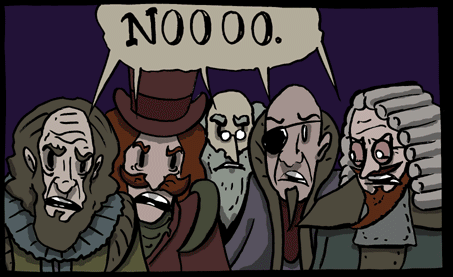Brett Reynolds (who writes the blog English, Jack) raised an interesting question of detail about English grammar the other day in an email to me and Rodney Huddleston: What is the syntactic category (part of speech) of slash, as used in There is also a study slash guest bedroom, or We need a corkscrew slash bottle opener? (Brett's email, incidentally, provided what I think is the right answer.)
The syntactic categories of a language are supposed to be grammatically definable natural classes of words that share syntactic properties with each other to an interesting degree — to a degree that clearly makes it easier to describe how sentences are put together. You can assume for present purposes that the categories to choose from are the ones used in The Cambridge Grammar of the English Language: Noun (dog, gratitude, . . .), Verb (walk, instantiate, . . .), Adjective (good, ridiculous, . . .), Adverb (carefully, soon, . . .), Preposition (of, through, . . .), Determinative (the, some, . . .), Subordinator (that, whether, . . .), Coordinator (and, or, . . .), or Interjection (ouch, hey, . . .). Where would you put slash? (In the use exemplified by the sentence given above, that is.) Think about it a little before you read on.
Read the rest of this entry »

 Ads for the Confucius Institutes show up all over the Web. At times they seem to be virtually ubiquitous, at least on sites that I visit. One that I've been encountering frequently of late shows a sculpture of Confucius, at the bottom of which are written the words "Kongzi Xueyuan" 孔子學院, translated below that as "Confucius Institute," followed by the words "Teach you pure Chinese."
Ads for the Confucius Institutes show up all over the Web. At times they seem to be virtually ubiquitous, at least on sites that I visit. One that I've been encountering frequently of late shows a sculpture of Confucius, at the bottom of which are written the words "Kongzi Xueyuan" 孔子學院, translated below that as "Confucius Institute," followed by the words "Teach you pure Chinese."

